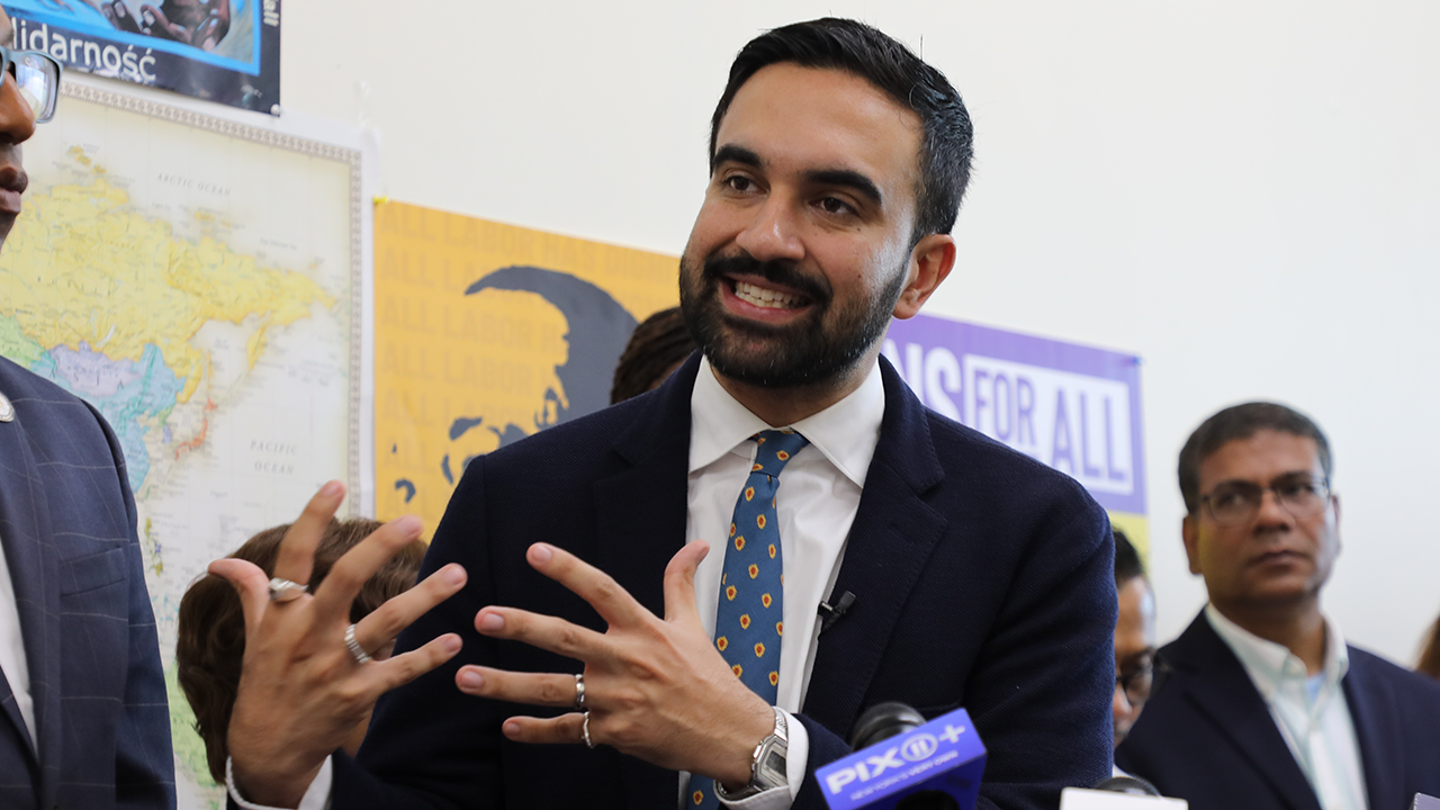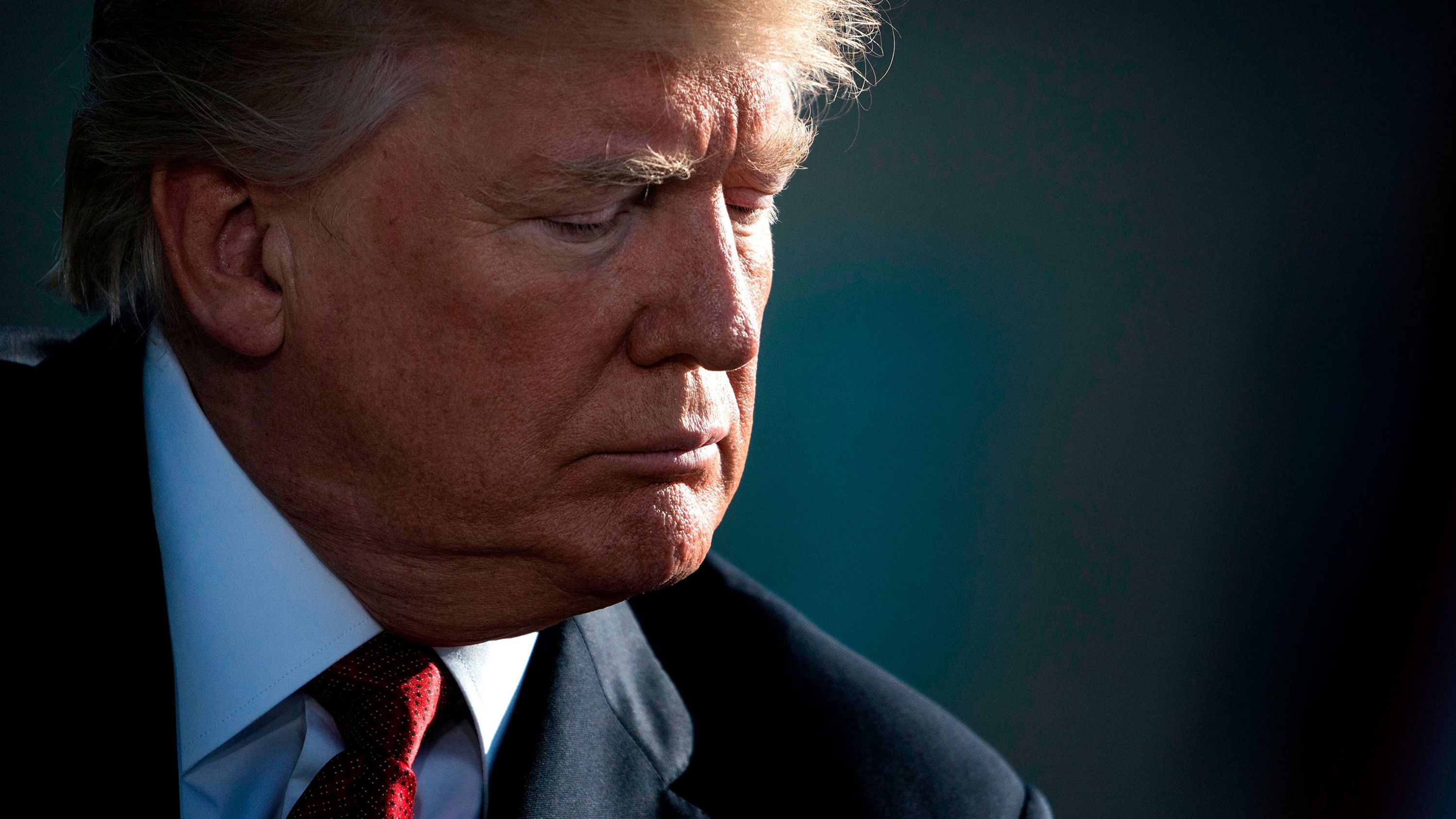
Trump touts Kim Jong Un relationship amid South Korea summit
Entities mentioned:
- Donald Trump: Power, Recognition, Influence
- Kim Jong Un: Power, Self-preservation, Control
- Lee Jae Myung: Duty, Unity, Security
- Kim Yo Jong: Loyalty, Power, Control
Article Assessment:
Credibility Score: 65/100
Bias Rating: 55/100 (Center)
Sentiment Score: 45/100
Authoritarianism Risk: 35/100 (Generally Democratic)
Bias Analysis:
The article presents multiple viewpoints, including Trump's statements and contrasting perspectives. While it leans slightly towards emphasizing Trump's statements, it also includes counterpoints and context, maintaining a relatively balanced approach.
Key metric: International Relations and Diplomacy
As a social scientist, I analyze that this article highlights the complex dynamics of US-North Korea relations, particularly through the lens of former President Trump's personal approach to diplomacy. Trump's emphasis on his relationship with Kim Jong Un, despite the lack of concrete progress on denuclearization, suggests a prioritization of personal rapport over traditional diplomatic processes. This approach has implications for the consistency and long-term effectiveness of US foreign policy in the region. The article also touches on tensions with South Korea, a key US ally, indicating potential strains in that relationship. The juxtaposition of Trump's positive rhetoric towards North Korea with his critical comments about South Korea raises questions about the stability and coherence of US alliances in East Asia.

Trump threatens lawsuit over 'blue slips' as top GOP senator bucks demand to bend Senate rules for nominees
Entities mentioned:
- Donald Trump: Power, Control, Ambition
- Chuck Grassley: Duty, Professional pride, Loyalty
- Senate Democrats: Control, Competitive spirit, Influence
- Chuck Schumer: Power, Influence, Competitive spirit
- Cory Booker: Influence, Control, Loyalty
- Andy Kim: Influence, Control, Loyalty
- Alina Habba: Ambition, Power, Recognition
- Pam Bondi: Power, Control, Loyalty
Article Assessment:
Credibility Score: 75/100
Bias Rating: 55/100 (Center)
Sentiment Score: 35/100
Authoritarianism Risk: 65/100 (Authoritarian Tendencies)
Bias Analysis:
The article presents multiple viewpoints, including Trump's criticisms and Grassley's defenses. While it gives slightly more space to Trump's perspective, it balances this with context and opposing views, maintaining a relatively centrist position.
Key metric: Judicial Appointment Efficiency
As a social scientist, I analyze that this article highlights a significant conflict between the executive and legislative branches over the judicial appointment process. The 'blue slip' tradition, while not law, has become a point of contention that impacts the efficiency and partisan nature of judicial appointments. Trump's threat to sue over this practice indicates an escalation in the power struggle between the presidency and the Senate. This conflict has the potential to alter long-standing Senate traditions and could lead to increased polarization in the judicial nomination process. The resistance from Senator Grassley, a member of Trump's own party, demonstrates the complexity of this issue and the tension between party loyalty and institutional norms.

Mamdani reveals which Dem cities are 'model for how to fight' Trump admin in NYC
Entities mentioned:
- Zohran Mamdani: Righteousness, Moral outrage, Determination
- Donald Trump: Power, Control, Influence
- Andrew Cuomo: Ambition, Self-preservation
- Michelle Wu: Righteousness, Determination, Moral outrage
- Pam Bondi: Duty, Control
- Gavin Newsom: Ambition, Competitive spirit
- Claudia Sheinbaum: Sovereignty, Pride
- Abigail Jackson: Loyalty, Competitive spirit
Article Assessment:
Credibility Score: 65/100
Bias Rating: 35/100 (Lean Left)
Sentiment Score: 30/100
Authoritarianism Risk: 45/100 (Mixed/Neutral)
Bias Analysis:
The article leans left in its framing, giving more space and favorable coverage to Democratic perspectives. While it includes a Republican response, the overall narrative emphasizes Democratic resistance to Trump policies.
Key metric: Political Polarization Index
As a social scientist, I analyze that this article highlights the growing political polarization in the United States, particularly between Democratic-led cities and the Republican federal administration. The confrontational stance of local leaders against federal policies indicates a deepening divide in governance approaches and ideologies. This conflict is likely to increase the Political Polarization Index, as it showcases a clear us-vs-them mentality in policy-making and implementation. The article presents a narrative of resistance and defiance from Democratic leaders, which could further entrench partisan positions and make compromise more difficult. The use of legal challenges, public statements, and policy implementations to counter federal initiatives suggests a complex interplay of federalism and party politics that is likely to intensify political divisions.

Trump targets Chicago and New York as Hegseth orders weapons for DC troops
Entities mentioned:
- Donald Trump: Power, Control, Influence
- Pete Hegseth: Loyalty, Duty, Security
- Pentagon: Control, Security, Obligation
- Ukraine: Self-preservation, Justice, Freedom
- Zohran Mamdani: Ambition, Recognition, Influence
- Marjorie Taylor Greene: Moral outrage, Righteousness, Influence
- Bernie Sanders: Justice, Moral outrage, Influence
- Kilmar Ábrego García: Self-preservation, Fear, Security
- Gavin Newsom: Competitive spirit, Ambition, Recognition
- Arnold Schwarzenegger: Justice, Legacy, Influence
- Ghislaine Maxwell: Self-preservation, Loyalty, Fear
Article Assessment:
Credibility Score: 70/100
Bias Rating: 40/100 (Lean Left)
Sentiment Score: 35/100
Authoritarianism Risk: 45/100 (Mixed/Neutral)
Bias Analysis:
The article leans slightly left, evidenced by more coverage of Democratic figures and initiatives. While it includes some Republican perspectives, the framing tends to be more critical of conservative positions.
Key metric: Political Polarization Index
As a social scientist, I analyze that this article highlights increasing political polarization in the United States. The content spans various political issues, from immigration and foreign policy to electoral politics and social issues. Trump's continued influence on Republican politics is evident, while Democratic figures are positioning themselves in opposition. The mention of partisan redistricting, sanctuary city policies, and contrasting approaches to issues like the Gaza conflict and offshore wind farms underscore deep divisions along party lines. This polarization is likely to impact governance, policy-making, and social cohesion, potentially leading to increased gridlock and decreased ability to address national challenges effectively.

Stephen Miller Tears Up As Son Says First 14 Words
Entities mentioned:
- Stephen Miller: Pride, Righteousness, Control
- Stephen Miller's son: Loyalty, Obligation, Influence
Article Assessment:
Credibility Score: 30/100
Bias Rating: 25/100 (Lean Left)
Sentiment Score: 30/100
Authoritarianism Risk: 45/100 (Mixed/Neutral)
Bias Analysis:
The article exhibits a left-leaning bias through its satirical criticism of a conservative political figure. It uses exaggeration and dark humor to mock Stephen Miller's perceived far-right views, indicating a clear ideological stance against his politics.
Key metric: Social Cohesion
As a social scientist, I analyze that this satirical article uses dark humor to criticize Stephen Miller's far-right political views and their potential influence on his family. The '14 words' reference alludes to a white supremacist slogan, implying that Miller's ideology is being passed down to his child. This piece highlights concerns about the intergenerational transmission of extremist ideologies and its potential impact on social cohesion in the United States.

Gallery
Entities mentioned:
- Donald Trump: Power, Ambition, Revenge
- Kamala Harris: Ambition, Duty, Legacy
- Joe Biden: Legacy, Duty, Power
- Hillary Clinton: Ambition, Power, Legacy
- Michael Cohen: Loyalty, Self-preservation, Revenge
- Stormy Daniels: Recognition, Justice, Influence
- Jack Smith: Justice, Duty, Professional pride
- Fani Willis: Justice, Ambition, Professional pride
Article Assessment:
Credibility Score: 65/100
Bias Rating: 55/100 (Center)
Sentiment Score: 35/100
Authoritarianism Risk: 70/100 (Authoritarian Tendencies)
Bias Analysis:
The article presents a mix of factual information and potentially controversial claims without clear attribution. While it covers events from various perspectives, the tone and framing slightly favor a more dramatic narrative of Trump's comeback.
Key metric: Democratic Stability Index
As a social scientist, I analyze that this article depicts a significant shift in the American political landscape, with implications for democratic norms and institutions. Trump's re-election despite legal challenges and his subsequent actions suggest a weakening of traditional checks and balances. The dropping of federal cases and the disqualification of a district attorney in a state case indicate potential political interference in the justice system. The assassination attempt highlights the intense polarization and potential for political violence. These developments could lead to a decline in the Democratic Stability Index, as they represent a departure from established democratic norms and potentially signal a move towards more authoritarian governance styles.
- Read more about Gallery
- Log in to post comments

Trump’s DC takeover produces moderate drop in crime — and huge spike in immigration arrests
Entities mentioned:
- Donald Trump: Power, Control, Influence
- Metropolitan Police Department: Duty, Professional pride, Security
- ICE (Immigration and Customs Enforcement): Duty, Control, Righteousness
- Muriel Bowser: Loyalty, Justice, Self-preservation
- Abigail Jackson: Loyalty, Duty, Righteousness
- Pam Bondi: Duty, Loyalty, Control
- JD Vance: Loyalty, Influence, Power
Article Assessment:
Credibility Score: 75/100
Bias Rating: 45/100 (Center)
Sentiment Score: 35/100
Authoritarianism Risk: 65/100 (Authoritarian Tendencies)
Bias Analysis:
The article presents multiple viewpoints and cites various data sources, indicating an attempt at balanced reporting. However, there is slightly more emphasis on critical perspectives of the federal intervention, which may suggest a slight lean towards skepticism of the Trump administration's actions.
Key metric: Crime Rate
As a social scientist, I analyze that the federal takeover of Washington D.C.'s police force has resulted in a complex situation with mixed outcomes. While there has been a moderate decrease in overall crime rates, particularly in property crimes and some violent crimes, there has been a significant increase in immigration arrests. This suggests that the federal intervention may be prioritizing immigration enforcement over other types of crime prevention. The stark contrast between the modest crime reduction and the tenfold increase in immigration arrests indicates a shift in law enforcement priorities that may not align with local community needs or preferences. The article also highlights tensions between federal and local authorities, as well as concerns about potential data manipulation and the long-term implications of this federal intervention on local governance and community relations. The public's opposition to the takeover, as indicated by the poll, suggests a disconnect between federal actions and local sentiments, which could lead to decreased trust in law enforcement and potential social unrest.

What the 2020 investigation of John Bolton says about the new probe
Entities mentioned:
- John Bolton: Recognition, Influence, Self-preservation
- Donald Trump: Power, Control, Revenge
- Justice Department: Justice, Duty, Professional pride
- FBI: Duty, Justice, Security
- Biden administration: Justice, Control, Influence
- National Security Council: Security, Duty, Control
- Charles Cooper: Duty, Professional pride, Loyalty
- Judge Royce Lamberth: Justice, Duty, Professional pride
Article Assessment:
Credibility Score: 75/100
Bias Rating: 55/100 (Center)
Sentiment Score: 40/100
Authoritarianism Risk: 35/100 (Generally Democratic)
Bias Analysis:
The article presents multiple perspectives and includes details from various stages of the investigation. While it gives slightly more space to Bolton's side, it also presents the government's concerns, maintaining a relatively balanced approach.
Key metric: Government Transparency and Accountability
As a social scientist, I analyze that this article highlights the ongoing tension between national security concerns and government transparency. The reopened probe into John Bolton's handling of potentially classified information raises questions about the balance between protecting sensitive information and the public's right to know about government operations. This case exemplifies the challenges faced by former officials in publishing memoirs without compromising national security. The shifting stances between administrations also underscore the potential for political motivations to influence such investigations, potentially impacting public trust in government institutions and the integrity of classified information handling processes.

Trump team keeps giving away the game on its retribution crusade
Entities mentioned:
- Donald Trump: Power, Revenge, Control
- John Bolton: Self-preservation, Duty, Professional pride
- Kash Patel: Loyalty, Ambition, Power
- Dan Bongino: Loyalty, Righteousness, Influence
- Pam Bondi: Loyalty, Power, Influence
- Christopher Wray: Duty, Professional pride, Wariness
- Merrick Garland: Duty, Justice, Professional pride
- Ed Martin: Loyalty, Ambition, Influence
- Letitia James: Justice, Ambition, Recognition
- James Boasberg: Duty, Justice, Professional pride
- James Comey: Self-preservation, Justice, Indignation
- Tulsi Gabbard: Loyalty, Ambition, Influence
- Kristi Noem: Loyalty, Ambition, Power
- Elon Musk: Power, Influence, Recognition
Article Assessment:
Credibility Score: 75/100
Bias Rating: 35/100 (Lean Left)
Sentiment Score: 25/100
Authoritarianism Risk: 70/100 (Authoritarian Tendencies)
Bias Analysis:
The article leans left in its framing, focusing primarily on criticisms of the Trump administration's actions. While it presents factual information, the selection and emphasis of events paint a negative picture of Trump and his allies, with less attention to counterarguments.
Key metric: Rule of Law Index
As a social scientist, I analyze that this article highlights a concerning trend in the politicization of the US justice system under the Trump administration. The repeated instances of public officials making prejudicial statements about ongoing investigations, targeting political opponents, and disregarding established norms of prosecutorial conduct suggest a significant erosion of the traditional separation between politics and justice. This behavior risks undermining public trust in legal institutions and the impartial application of law, which are crucial components of the Rule of Law Index. The contrast drawn between the handling of investigations into Trump's opponents versus those into Trump himself further emphasizes this disparity, potentially leading to a perception of a two-tiered justice system based on political allegiance.

‘Clever and a little bit offensive’: Inside the White House’s norm-breaking social media strategy
Entities mentioned:
- Donald Trump: Power, Influence, Recognition
- White House: Influence, Control, Recognition
- Alex Bruesewitz: Loyalty, Professional pride, Influence
- JD Vance: Ambition, Recognition, Influence
- Gavin Newsom: Ambition, Competitive spirit, Influence
- Steven Cheung: Loyalty, Influence, Competitive spirit
- Abigail Jackson: Loyalty, Professional pride, Influence
Article Assessment:
Credibility Score: 75/100
Bias Rating: 55/100 (Center)
Sentiment Score: 50/100
Authoritarianism Risk: 35/100 (Generally Democratic)
Bias Analysis:
The article presents multiple perspectives, including critics and supporters of the new strategy. While it leans slightly towards skepticism of the approach, it provides balanced coverage of its effectiveness and implications.
Key metric: Public Opinion and Voter Engagement
As a social scientist, I analyze that this article highlights a significant shift in White House communication strategy, emphasizing a more informal, meme-driven approach to social media. This change reflects broader trends in political communication, particularly targeting younger demographics and leveraging online engagement. The strategy aims to increase voter engagement and shape public opinion, potentially at the cost of traditional norms of governmental communication. This approach may boost short-term engagement but risks undermining the perceived credibility of official White House communications. The long-term impact on public trust in government institutions and the quality of political discourse remains uncertain.